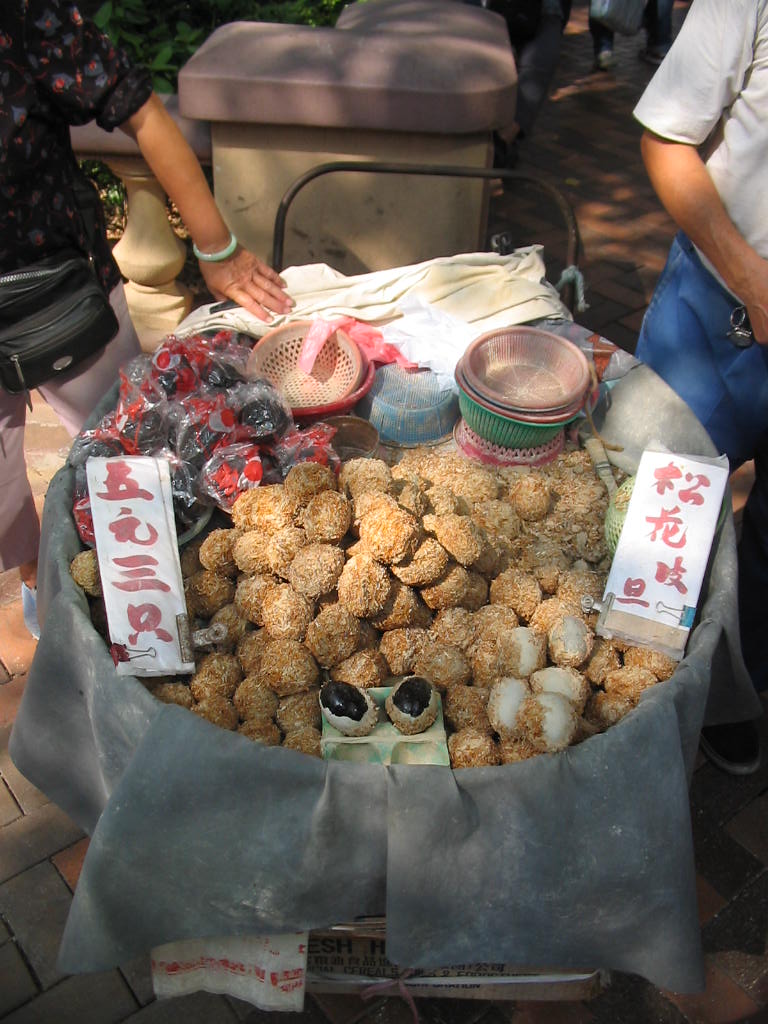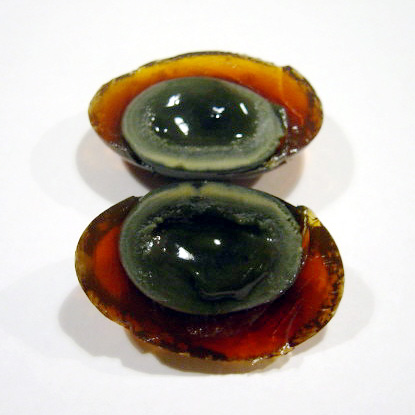Are you ready to be surprised? Let’s talk about the traditional Chinese dish “centenary egg” (sometimes also called the millennium).
What is it?
A hundred-year or thousand-year-old egg is a canned product. Traditionally, duck is taken, but an alternative can be found and use chicken, goose, quail or turkey eggs and aged in a mixture of clay, ash, salt, lime and rice husks. Of course, eggs have not been cooked for a thousand or even a hundred years. Usually they are kept for a couple of three months, the longest period is eight.
The coating of eggs dries and hardens over time, and chemical processes begin to take place inside.
As a result of the reaction, the protein acquires a jelly-like consistency and a deep amber color, and on its surface microscopic crystals form a pattern similar to frost on a window. It is believed that the larger and clearer the pattern, the better the quality of the egg. The yolk becomes dark gray and creamy with shades ranging from green to black.

CC BY 2.0 Image by
Taste and smell are difficult to describe in words. It must be admitted that they have an extremely strong sulfuric smell, which not everyone likes. However, if you overpower yourself and put a piece of egg in your mouth, you will feel its strong salty taste, reminiscent of Brie cheese mixed with duck pate.
Thanks to their method of preparation, they contain much more protein, but less carbohydrates. A dream come true for athletes and healthy eating habits! Centennial eggs are rich in iron, selenium, phosphorus. The Chinese believe that their regular use normalizes blood pressure, improves vision and liver function.
